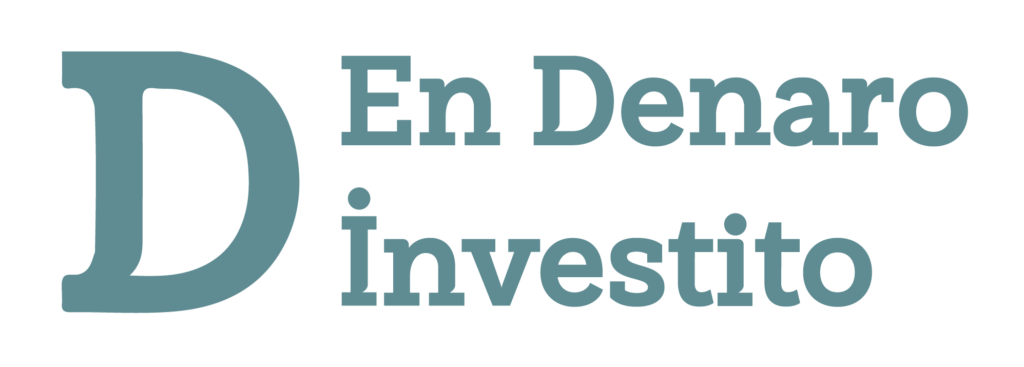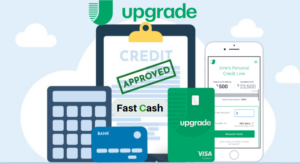Imagine being able to achieve your goals. Think about renovating your home, starting a new business, or combining debts to start fresh. A tailored loan could help bring your dreams to life. These loans are designed to match your unique financial needs perfectly. This means you get loan terms that work best for you.
According to the Consumer Financial Protection Bureau, choosing the right loan is key for your financial future. Also, the Federal Reserve Bank shows more people want loans made just for them. Forbes says personalized financial services are changing how people make decisions. Find out how a customized loan solution can open the door to your financial dreams.
Key Takeaways
- A tailored loan can provide financial freedom to achieve your goals.
- Customizing loan solutions ensures alignment with your unique needs.
- The Consumer Financial Protection Bureau emphasizes the importance of choosing the right loan product.
- The Federal Reserve Bank reports increasing demand for personalized lending options.
- Forbes highlights the significant impact of personalized financial services on consumer choices.
Why You Need a Tailored Loan
Getting a loan made just for your financial needs can change everything for you. These special loans give you the freedom to manage your money your way. They’re crafted to fit different financial needs like a glove, unlike one-size-fits-all loans.
The Benefits of Customization
Custom loans shine because they’re all about what you need. You can choose terms that match your money goals perfectly. Adjusting your payment plan or how much you borrow is easy, offering solutions for every unique situation.
An analysis by Experian reveals that borrowers who choose tailored loans often enjoy more manageable repayment plans and competitive interest rates, enhancing their overall financial flexibility.
Meeting Your Specific Needs
Tailored loans are great because they meet a wide range of money needs. Experts often say that these personalized loans are key to achieving your financial dreams. They come with flexible terms and special attention, laying a solid foundation for financial growth and stability.
| Feature | Generic Loan | Tailored Loan |
|---|---|---|
| Interest Rate | Standard | Competitive & Customizable |
| Repayment Schedule | Fixed | Flexible |
| Loan Amount | Pre-determined | Customized |
| Customer Support | Limited | Personalized |
So, choosing a tailored loan means you’re after real financial freedom and a clear path to your money goals. Saying yes to custom loan solutions is a big move towards controlling your finances.
Understanding Different Types of Loans
Choosing the right loan starts with knowing what’s out there. Let’s look at some common loan options to help you decide.
Loans can be secure or unsecure. Secured loans need collateral, like a house for a mortgage or a car for an auto loan. Unsecured loans, like personal loans, don’t need collateral.
Interest rates matter too. They can be fixed or adjustable. Fixed-rate loans keep the same interest rate, making payments predictable. Adjustable-rate loans change with the market, which could save you money when rates fall.
“Understanding the terms and conditions of various loan types gives borrowers the leverage to choose the right loan based on their financial needs and repayment capabilities.”
Let’s check out the different loan options:
| Type of Loan | Secured/Unsecured | Interest Rate | Typical Purpose |
|---|---|---|---|
| Mortgage | Secured | Fixed or Adjustable | Home purchase |
| Auto Loan | Secured | Fixed | Vehicle purchase |
| Personal Loan | Unsecured | Fixed or Adjustable | Debts, big buys |
| Business Loan | Secured or Unsecured | Fixed or Adjustable | Growing your business |
When picking a loan, think about what you need and your long-term plans. By weighing these loan options, you’ll find the right fit for your situation.
Personal Loans for Any Purpose
Personal loans are great for different needs. Whether it’s for merging debt or big purchases, they work well.
Consolidating Debt
Many get personal loans to consolidate debt. It means turning several high-interest debts into one with a lower rate. This simplifies payments and can lower your monthly costs. NerdWallet’s study suggests consolidation can ease financial stress.
With a personal loan, you can clear credit card, medical, and other debts. It’s a smart move.
Funding Major Purchases
Personal loans also help with big costs like weddings or home makeovers. The Knot shows they’re good for wedding expenses. For unexpected bills, they offer a quick fix without hurting your savings.
Using loans wisely aids in managing financial steps. They give immediate access to money, making your goals achievable. This way, you save your savings for later.
Finding the Best Mortgage
Finding the right mortgage is key to buying your home. There are many loans out there, so knowing what you want helps. Picking the one that fits your finances makes everything easier.
Fixed vs. Variable Rates
Choosing your mortgage type is an important first step. With a fixed-rate mortgage, your interest rate stays the same, which simplifies budgeting. But, a variable-rate mortgage might have lower costs at first. These costs could go up or down depending on the market, which might save you money if rates stay low.
Tips for First-Time Homebuyers
Buying your first home can seem tough. Here’s how to make it easier:
- Understand Your Budget: Know how much you can spend without trouble.
- Get Pre-Approved: Getting pre-approved shows how much you can borrow before you start looking.
- Research Mortgage Options: Look at different loans to find the best one for you.
- Utilize Government Resources: Use help from the U.S. Department of Housing and Urban Development for homebuyers.
Auto Loans Made Easy
Getting a car loan becomes smooth when you know what to do. Learning how vehicle financing works can get you better deals. Use advice from places like Kelley Blue Book and Edmunds to make confident choices in your auto purchase.
- Understand your credit score and its impact on loan terms.
- Review various vehicle financing options available both online and offline.
- Compare interest rates and terms from multiple lenders.
Here are important things to think about when buying a car:
- Loan Term Length: Shorter loans mean higher monthly payments but less interest overall.
- Down Payment: Putting more money down can lower your loan amount and maybe get you better terms.
- Annual Percentage Rate (APR): The APR is the interest rate plus fees. It shows the total cost of the loan.
Let’s compare two common car loan examples:
| Loan Factor | Scenario A | Scenario B |
|---|---|---|
| Loan Term Length | 36 months | 60 months |
| Down Payment | $5,000 | $2,000 |
| Annual Percentage Rate (APR) | 3.5% | 5.0% |
| Monthly Payment | $400 | $300 |
Looking at these scenarios helps you see how different factors change your loan plan. Get ready by asking the right questions and doing your homework for a smoother auto purchase.
Student Loans: Investing in Your Future
Getting a student loan is key to pursuing higher education, which is vital for career growth. It’s important to know the difference between federal and private loans and their repayment choices. This knowledge helps in fully benefiting from education financing.
Federal vs. Private Loans
Federal student loans are provided by the government and usually have lower interest rates and more flexible repayment choices. They offer income-driven repayment plans and may forgive loans for some public service work. Using Sallie Mae, private student loans come from banks and might have higher rates and less protection for borrowers.
Here is a quick look at how federal and private student loans compare:
| Feature | Federal Loans | Private Loans |
|---|---|---|
| Interest Rates | Fixed and lower | Variable and higher |
| Repayment Options | Flexible, income-driven plans | Limited, standard plans |
| Forgiveness Programs | Available for eligible public service roles | Not typically available |
| Credit Check | Not required | Required |
| Subsidized Options | Available | Not available |
Repayment Options
Loan repayment starts after you graduate. It’s important to choose a plan that fits your budget. Federal loans offer several repayment options like the Standard and Graduated Repayment Plans. These are designed to match different financial situations, offering a way to pay back loans smoothly.
On the contrary, private student loans usually have fewer repayment options. Often, you have to follow the bank’s standard repayment terms, which could mean higher monthly payments. Knowing these differences helps in effectively managing education financing.
Business Loans for Growth and Expansion
To grow, businesses need funds. There are many loan types for different needs. From startup loan options for new companies to finance choices for the growth of small businesses.
Types of Business Loans
Business loans vary, each serving a special purpose:
- Term Loans: Traditional loans offering a lump sum to be paid back over time with interest. They’re great for big investments.
- SBA Loans: Supported by the Small Business Administration, these loans have lower interests and longer payback times. They help small businesses grow.
- Equipment Financing: This loan helps buy business equipment. The equipment itself secures the loan, making it less risky for lenders.
- Invoice Financing: This allows businesses to borrow against future invoice payments. It boosts cash flow without waiting for customer payments.
- Startup Loans: These provide the initial funds new businesses need to start. They’re specifically designed for startups.
Finding the right loan is crucial for your business’s journey.
Preparing Your Business Plan
Creating a strong business plan is key to getting business financing. Your business plan should have:
- Executive Summary: A quick look at your business, goals, and plans for reaching them.
- Market Analysis: In-depth study of your industry, competition, and customers.
- Financial Projections: Honest financial predictions including various financial statements.
- Funding Request: The amount of money you need and how you’ll use it.
- Appendices: Extra documents like key team resumes, legal contracts, and more.
A detailed business plan boosts your chance to secure the right startup loan or other funds for expanding your small business.
How to Get Your Loan Approved
Getting your loan approved might seem tough, but it’s easier when you know what counts. Lenders look at your credit score, how steady your paycheck is, and your debts. To get a better score, keep a good credit history and handle your debts well.
Start by checking your credit report often. Make sure everything on it is right and fix any mistakes.
Credit Karma advises: “Paying your bills on time and keeping your credit card balances low are essential practices for maintaining a high credit score.”
Having a steady job also matters to lenders. They want to see you can pay back the loan without issues. Be sure to show all your income when you apply.
Each lender has its own rules. They look at your credit score, how much debt you have, and your job history. Get to know these rules to make your application better.
Want to raise your chances of getting that loan? Here are some tips:
- Keep your credit report accurate and current.
- Lower your debts to make your debt-to-income ratio better.
- Have your income proof ready and in order.
- Know what the lender wants and make sure you meet those standards.
Experts point out important things lenders look at:
| Criteria | Importance |
|---|---|
| Credit Score | High |
| Income Stability | High |
| Debt-to-Income Ratio | Medium |
| Employment History | Medium |
Boosting your chances for a loan involves working on these key things. By improving your credit and meeting lender standards, you’ll look like a great choice for approval.
Step-by-Step Guide to the Loan Application Process
Getting a loan can be easy if you follow the right steps. This guide helps you understand key parts like gathering documents and learning about credit scores. Knowing these things makes you ready to apply for a loan confidently.
Gathering Required Documents
Before applying for a loan, you need to get all the documents together. You will need things like pay stubs, tax returns, bank statements, and ID. Having these ready makes the process faster and avoids delays.
It’s also important to know what your lender needs. Each lender might ask for different things. It’s wise to check their requirements or call a representative for a full list. This makes sure you have all you need for the loan.
Understanding Credit Scores
Your credit score is key in getting a loan. It influences if you qualify and the interest rate you get. A higher credit score means better terms because it shows you’re financially reliable.
Lenders look at your score from the big credit bureaus—Equifax, Experian, and TransUnion. It’s a good idea to check your report before applying. Fixing mistakes on your report can improve your score and help your loan get approved.
| Document | Purpose |
|---|---|
| Pay Stubs | Prove steady income |
| Tax Returns | Verify financial standing |
| Bank Statements | Detail asset and liability status |
| Proof of Identification | Identity verification |
By following this guide and preparing properly, you’ll improve your chance of a quick and successful loan application. Getting the right documents and understanding your credit score makes the whole process smoother. This prep work makes getting the money you need easier.
Securing a Low Interest Loan
Getting a loan with *low interest rates* takes careful planning. Your credit score plays a big part in the rate you’ll get. Make sure your credit score is right. Fix any errors you find.
It’s important to know the current trends in interest rates. This helps you apply for a loan when rates are low. Websites like NerdWallet give updates and insights.
Don’t just look at the interest rate when comparing loans. Watch out for hidden costs and the complete loan terms. Investopedia recommends comparing offers from several lenders. The annual percentage rate (APR) shows the real cost of a loan, including interest and fees.
Negotiation can also get you a better deal on your loan. With the right information and other offers in hand, you might convince lenders to lower their rates or fees. By showing you’re a good borrower and staying informed, you can find the best cost-effective financing.
| Factors | Action |
|---|---|
| Credit History | Ensure accuracy and dispute discrepancies |
| Market Trends | Monitor interest rate movements |
| Offer Comparison | Evaluate APR and hidden fees |
| Negotiation | Bargain for better terms using knowledge and alternative offers |
Conclusion
Getting financially empowered is possible with smart loan choices. Through our guide, we’ve talked about different loans like personal and auto loans, and more. These loans each have their own benefits to fit your goals. Knowing about these can help you make smart choices for both your money and life goals.
Choosing the right loan for you is the first step toward your financial goals. By picking the right kind of loan, you manage your money better and plan for a bright future. We’ve talked about how to customize loans, tips for buying your first home, and choosing between federal and private student loans. This knowledge will help you confidently move through the financial world.
Experts agree, picking a loan that suits you is key. It could be for paying off debt, making big purchases, or growing your business. The right loan is a big help in reaching your dreams. This guide aims to support you in finding financial stability and growth. It guides you to make great choices for a flourishing future.













